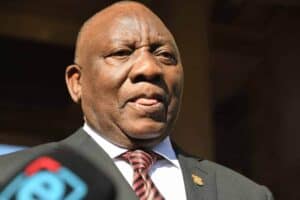If entire population groups cannot understand their place in society, how can they participate meaningfully in it?

My family has lived in South Africa for more than 13 generations and has stretched across at least three race classifications, and yet I am not seen as an African.
I may dance to Amapiano, watch rugby, attend spinning events, or share a curry with my neighbours, but we are constantly reminded that we are not the same. We may choose to all see ourselves as South Africans, but when we stand in line to fill in paperwork or listen to politicians speak, we are reminded that there is no such thing.
The box of aggressive racial classification that so haunted and divided South Africa during Apartheid continues, and was given a pass by President Cyril Ramaphosa this week
Speaking just days after Africa Day was celebrated across the continent, Ramaphosa claimed that citizens of all races have “equal claim to this country” and that everyone is “African first and foremost”. But then defended the government’s use of the word “African” to legally identify black South Africans.
After making his stand, he comically used the word “black” to describe the group from then on, as if he himself was not comfortable using the word in the context his party’s government had agreed to.
He noted several examples of the word “African” being used alongside “coloured,” “Khoi,” “white,” “Indian,” or “Asian,” including on BEE policy documents and official census records, where “Black African” is used.
If official and historical statistics can identify a group as black African, then why can’t they likewise see someone as white or Indian African?
Discrimination?
While Ramaphosa pointed to classification as a help in addressing previous inequalities, it does nothing to remedy the past if a coloured, Indian or Asian person is seen as black for BEEE purposes but not for other relief programs.
It only spreads more division if the state sees a group one way and then differently at another time, depending on what the government is trying to achieve.
Coloured and Indian communities have often spoken about how they feel relegated in society, often seen as an afterthought in the great race debate. If entire population groups cannot understand their place in society, how can they participate meaningfully in it?
ALSO READ: A VIEW OF THE WEEK: Don’t give BEE bully Musk your lunch money
Ramaphosa admitted that no impact assessment has been done to see how it disadvantages all South Africans to have only one group identified as merely African, but acknowledged that it hampered social cohesion.
And yet he stuck by his guns. He suggested that everyone should be seen as African, but until Apartheid wrongs were righted, it couldn’t be.
He gave no explanation of how the government was trying to reach this goal of unity, except to point out how BEE was failing, but must come right.
Meanwhile, communities across the country continue to question whether the continent that bore them has simply abandoned them.






